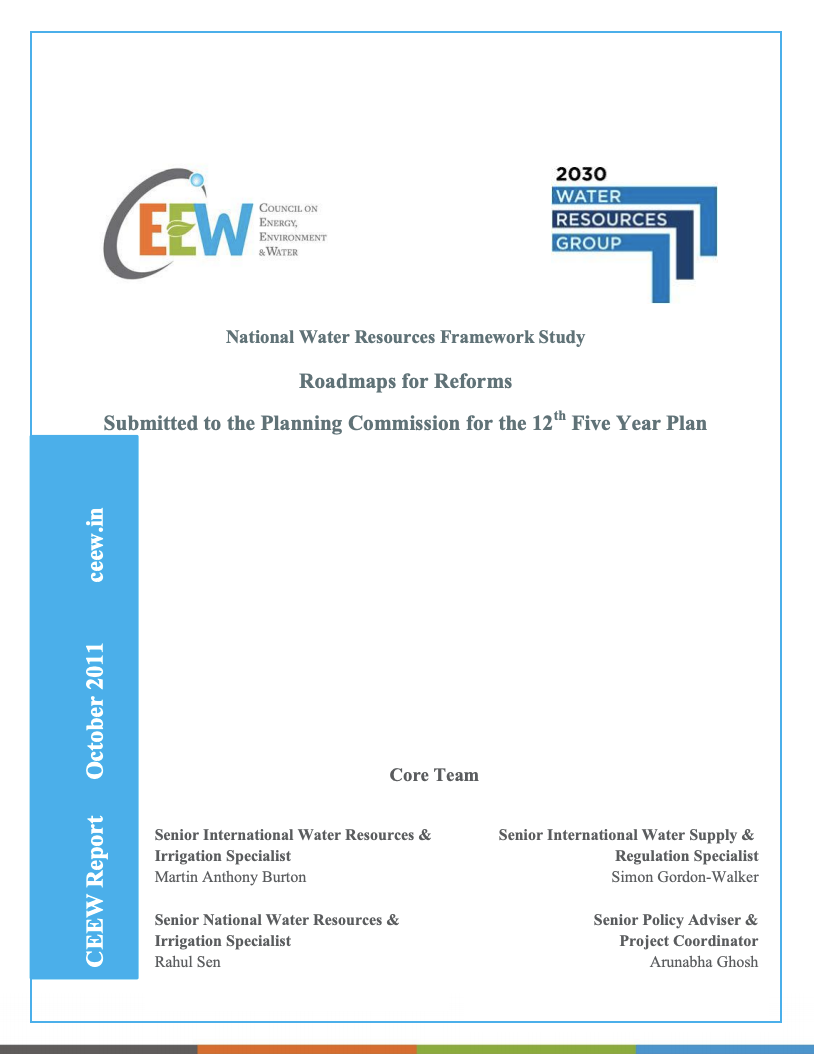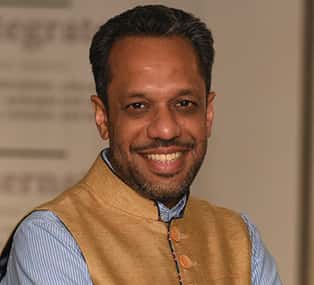



Martin A. Burton, Rahul Sen, Simon GordonWalker, Arunabha Ghosh
October 2011 | Sustainable Water
Suggested citation: Burton, Martin A., Rahul Sen, Simon GordonWalker, and Arunabha Ghosh. 2011. National Water Resources Framework Study: Roadmaps for Reforms. New Delhi: Council on Energy, Environment and Water.
This study, submitted to the Planning Commission for the 12th Five Year Plan, provides a detailed roadmap for reforming water management in India. Prepared in collaboration with the 2020 Water Resources Group, it covers reforms needed in the areas of water resources (both surface and groundwater), main system irrigation and on-farm irrigation. It defines the problems to be addressed concerning water management. The proposed course for reform is broken down into individual roadmaps for each component. It comprises identification of the problem, a concept and programme for reform and an action plan (with a logical framework) for implementation of the reform. Each roadmap presents reforms that are needed immediately and over the longer term. It offers a step-by-step action plan for each of the roadmaps. Further, it proposes a vision for the future and an associated route to achieve the same.
The roadmaps are part of the National Water Resources Framework Study that covers the full range of India’s water-related issues.
Proposed organisational framework for water resources management in each state
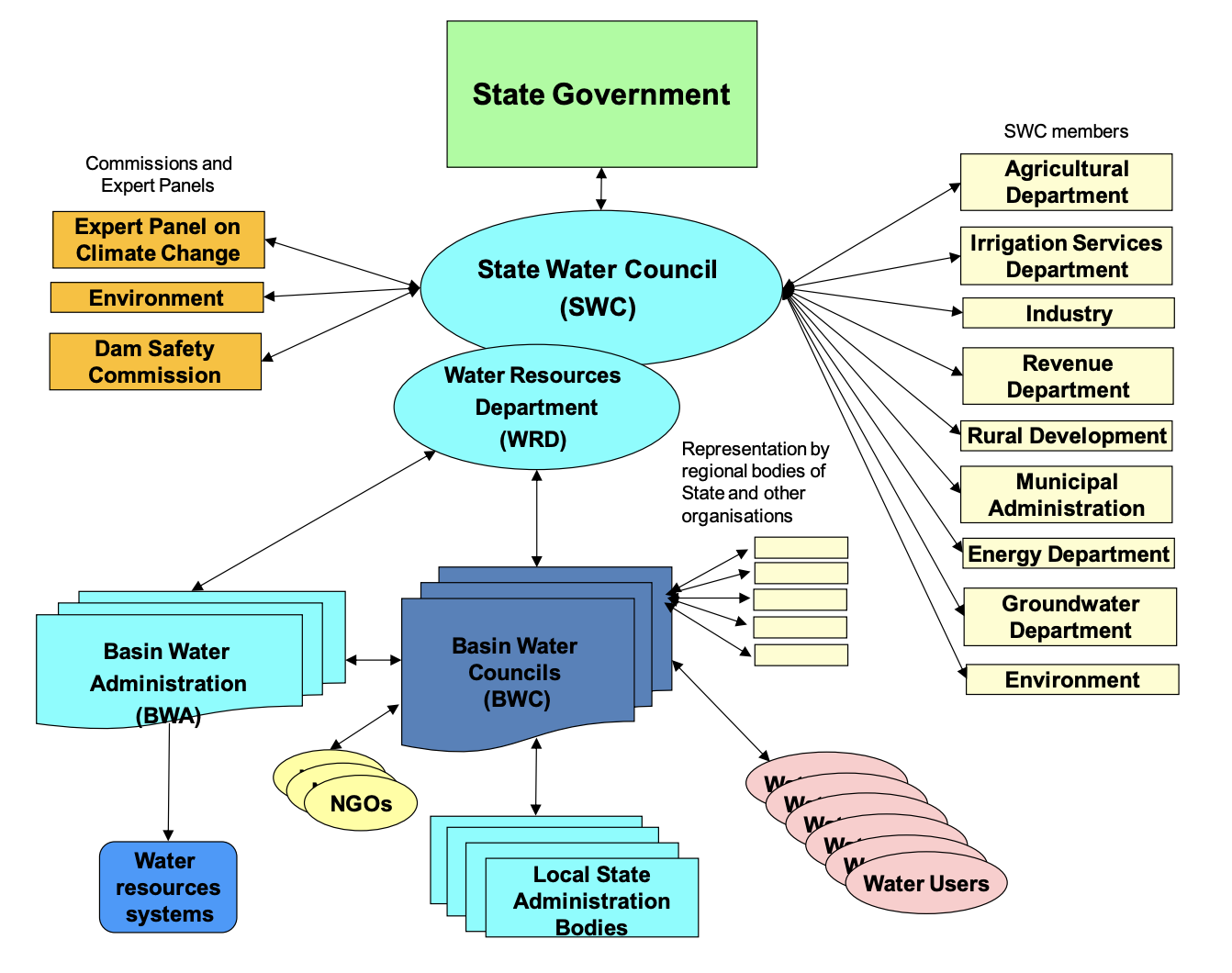
Source: Author's analysis
Roadmap 1: National Water Management Reform Programme
It proposes a national water management reform programme and underscores the importance of a multi-level approach to water management. It covers reforms at the state level for water resources management, main system irrigation management, and on-farm irrigation management
The programme includes the following three components:
1. Water resources management
2. Main system irrigation management
3. On-farm irrigation management
Roadmap 2: Ground Water Management
It outlines key elements of reform, such as agricultural feeder separation, rationalised power tariffs, more efficient pump sets, participatory management, and strengthened laws and institutions.
Roadmap 3: Water Utility Management Improvement & Reform
It emphasises the principles for water utilities, increased autonomy and accountability, benchmarking combined with performance monitoring, better delegation to the private sector for access to technology, systems and capital, and improved regulatory capacity.
Roadmap 4: Water Conservation Strategy for Industry
It proposes a detailed classification system for businesses, performance audits, water reclamation strategies, incentives and penalties, and greater public awareness.
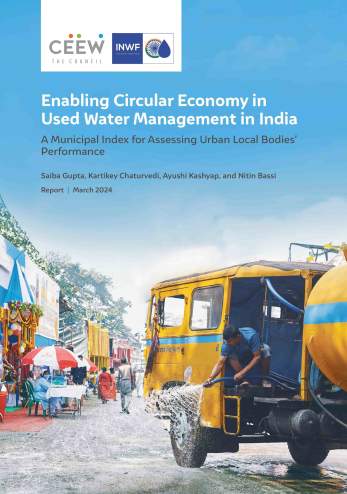
Enabling Circular Economy in Used Water Management in India
Saiba Gupta, Kartikey Chaturvedi, Ayushi Kashyap, Nitin Bassi
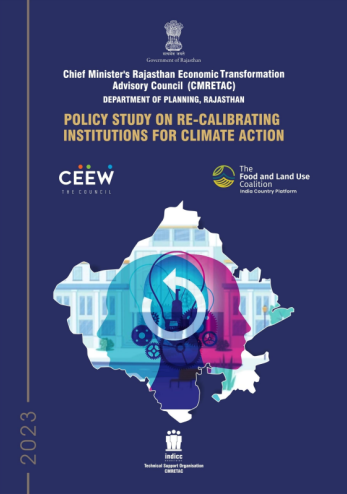
Policy Study on Re-calibrating Institutions for Climate Action
Sijo Abraham, Ekansha Khanduja, Shreya Wadhawan, Shravan Prabhu, Shanal Pradhan, Kartikey Chaturvedi, Gursimer Singh Gulati, Apoorve Khandelwal, Nitin Bassi
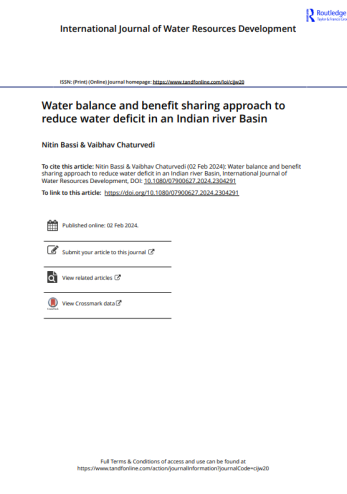
Water Balance and Benefit Sharing Approach to Reduce Water Deficit in an Indian River Basin
Nitin Bassi and Vaibhav Chaturvedi
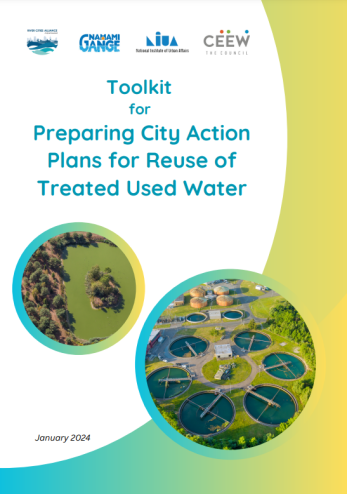
Toolkit for "Preparing City Action Plans for Reuse of Treated Used Water"
National Institute of Urban Affairs, National Mission for Clean Ganga and Council on Energy, Environment and Water
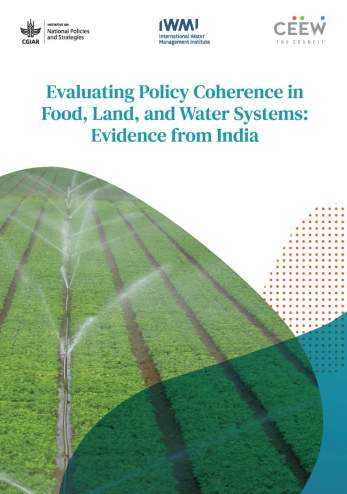
Evaluating Policy Coherence in Food, Land, and Water SystemsEvidence from India
CEEW and IWMI
